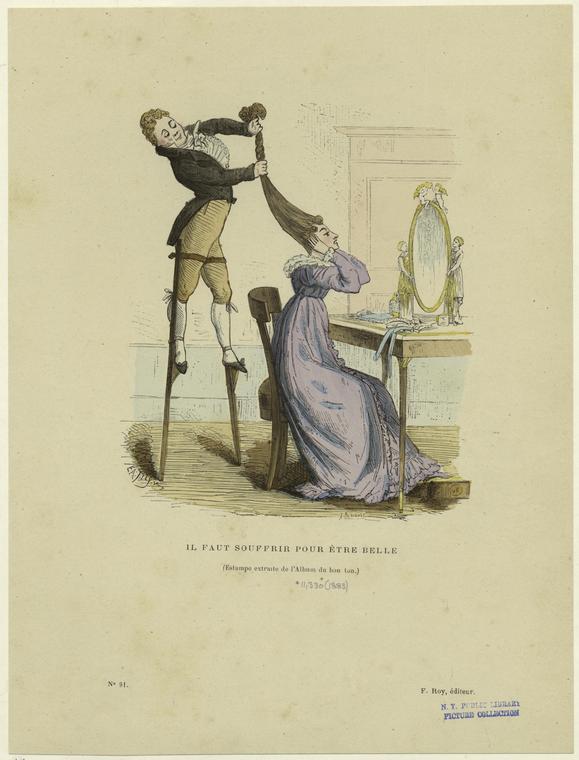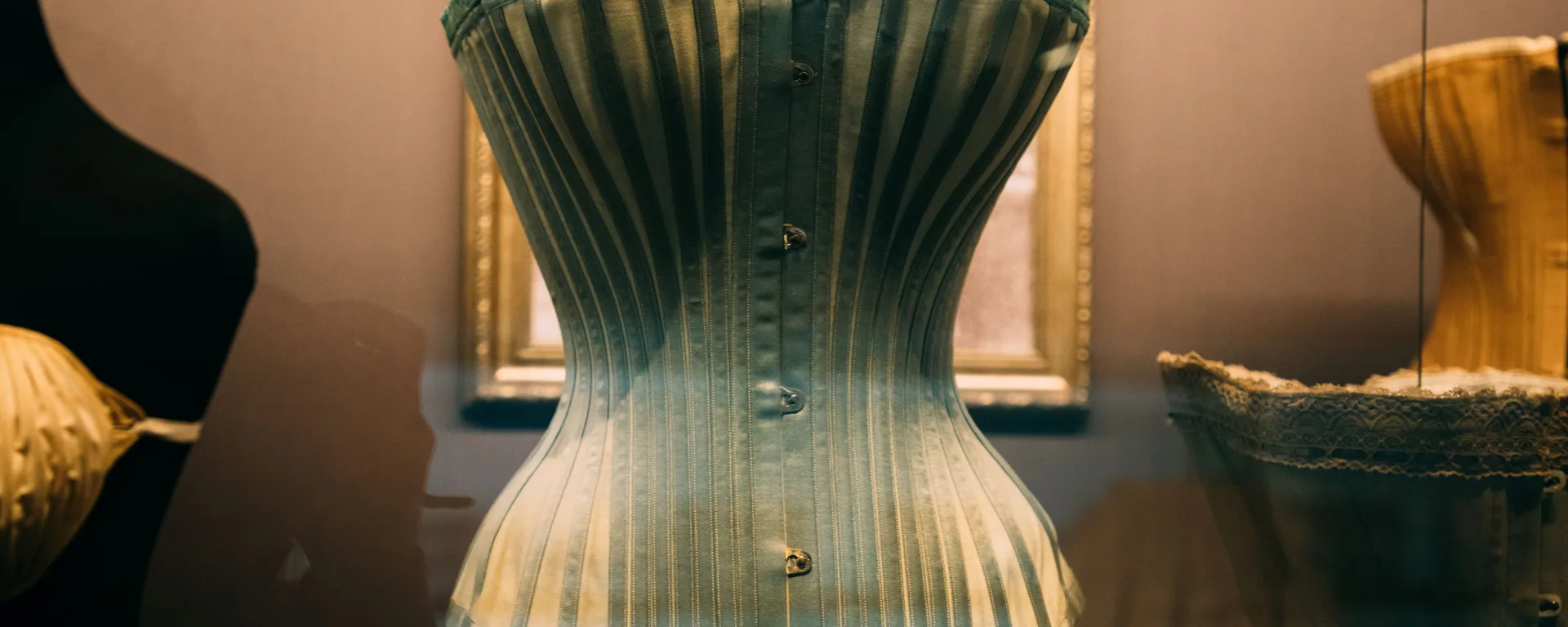As a young girl, my grandma would brush my hair in the mornings and – in pain – I would squirm. “Endure, grandma,* for beauty” (Трай, бабо, за хубост), she would say to me and shake her head as she continued to comb through my tangled hair.
At the time, I did not know that, growing up, I would hear this Bulgarian expression said over and over again. In reality, I would hear it whispered countless times by other women who have also learned that one must grit their teeth and bear the pain if they wish to be beautiful.
Whether it was a hairdresser urging me to sit still as a restless 5-year-old, a cosmetician plucking my eyebrows at 14, or a saleswoman selling me stilettos at 16, they would always speak these words in a matter-of-factly manner.
And, just like that, I was programmed to think that beauty is pain. Or – more specifically – that one could not be beautiful without first earning it by enduring anything from mild discomfort to pure agony.
Not surprisingly, my story is not unique to girls and women like me. Instead, it is recounted by women from all over the world. Going far beyond the borders of my country, the people around me, and the age I live in, the belief that beauty is pain can be seen as a universal notion.
France
Taking a case in point, the 19th century French illustration below depicts a hairdresser standing on stilts and pulling a woman’s hair. More importantly, it shows that the woman is clearly in pain as she is depicted with her hands on the side of her head.

Wikimedia Commons
Below the two figures, one can read: “Il faut souffrir pour être belle” or “One must suffer to be beautiful”.
While the illustration dates back nearly 2 centuries, its message still resonates with us today. That is, although beauty standards and fashion trends have changed (and will undoubtedly continue to do so), the pain and suffering always remain.
Germany
Crossing borders once again, the expression can also be found in the German language: “Wer schön sein will muss leiden” or “Who wants to be beautiful must suffer”.
Withstanding the test of time, the saying has found its way into popular culture, with the German rock band Oomph! releasing a song titled Wer schön sein will muss leiden in 2008. Two years later, the band released True Beauty is so painful, an English version of the song.
Spain
As we have already established, the belief that beauty is pain has crossed borders and remained relevant despite the passage of time. A 2014 article by El Mundo, the second-largest newspaper in Spain, brings our attention to one more fact: those who are rich and famous are also tied down by this age-old, universal notion.
Titled Para presumir, las famosas tienen que sufrir (To show off, the famous have to suffer), the article alludes to the Spanish expression “Para presumir hay que sufrir” or “To show off, you have to suffer”.
Furthermore, it features photographs of celebrities wearing extravagant outfits on the red carpet and either falling over or needing assistance to simply walk.
Putting an end to this detrimental notion
In recent years, artists from all over the world have begun producing content that makes us question the validity of such expressions. Moreover, they shed a light on how such notions are passed down and kept alive.
In 2013, Beyoncé released Pretty Hurts, a song addressing the unrealistic standards set by society and the destructive things women do to meet them. Speaking to MTV, the music video director Melina Matsoukas discussed the idea behind the Pretty Hurts music video, noting:
“I think we definitely wanted to speak to as many women as we could and all the pain and struggle that we go through as women to maintain this impossible standard of beauty.”
Considering all of the above, one can see the power of such sayings and how exposure to them can affect us. In a world that is constantly evolving, it is important to often step back and ask ourselves whether the things we believe in are true and worthy of passing down – or just centuries-old sayings that have never been questioned.
* Bulgarians (like people from certain Middle Eastern and Hispanic countries) often refer to their children (or grandchildren) in the same way they address them. For example, a mother may respond to her daughter by saying “Да, мамо” (“Yes, mama”). As such responses typically convey love, they can be seen as terms of endearment.
It follows then that the Bulgarian expression “Трай, бабо, за хубост” (“Endure, grandma, for beauty”) features “grandma” as a term of endearment.


2 thoughts on “How we are programmed to believe that beauty is pain”